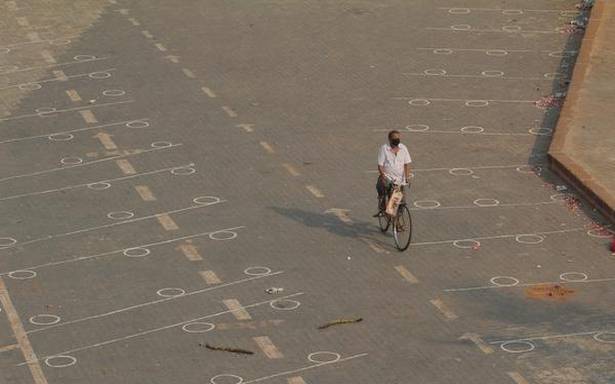Wearing face covers and masks is now compulsory in public places and workplaces, spitting in public is a punishable offence and selling liquor, gutka and tobacco is strictly prohibited. All industries operating in rural areas and the government’s flagship rural jobs scheme will also be allowed to reopen from April 20 if they follow social distancing norms and other safeguards against the COVID-19 infection.
These are some of the directives in a fresh order issued on Wednesday by the Ministry of Home Affairs (MHA) to manage the pandemic. The lockdown is scheduled to end on May 3.
Lockdown guidelines | What is allowed and what is not after April 20?
People violating quarantine will be punished under Section 188 of the Indian Penal Code, which prescribes six months imprisonment, if convicted. In the case of containment zones or hotspots, there will be a strict perimeter control. The State governments may impose stricter measures as per requirement in local areas, the order issued by Union Home Secretary Ajay Bhalla said.
Apart from rural industries, the guidelines permit the construction of roads, irrigation projects, buildings and industrial projects in rural areas. Construction of renewable energy projects will be allowed. In urban areas, only in situ construction projects will be allowed if workers are available on site. Brick kilns in rural areas can resume work.
The States will decide the additional public activities to be allowed from April 20.
India coronavirus lockdown Day 22 updates | Helpline numbers
They will have to be based on strict compliance with the existing guidelines on lockdown measures.
The relaxations will be implemented at the discretion of the State and district authorities in areas that have not been identified as infection hotspots or containment zones. Certain additional activities are being allowed “to mitigate hardship to the public”, says the order.
The standard operating procedure (SOP) for factories and office establishments from April 20 onwards says medical insurance is mandatory for workers.
Workplace curbs
Workplaces should have a gap of one hour between shifts, and lunch breaks should be staggered to ensure social distancing. All organisations should sanitise workplaces between shifts. Frequent cleaning of common surfaces and handwashing is mandatory. Thermal screening of all those entering and leaving the work premises is mandatory and a list of COVID-19 dedicated hospitals in the vicinity should be available at the workplace, states th

